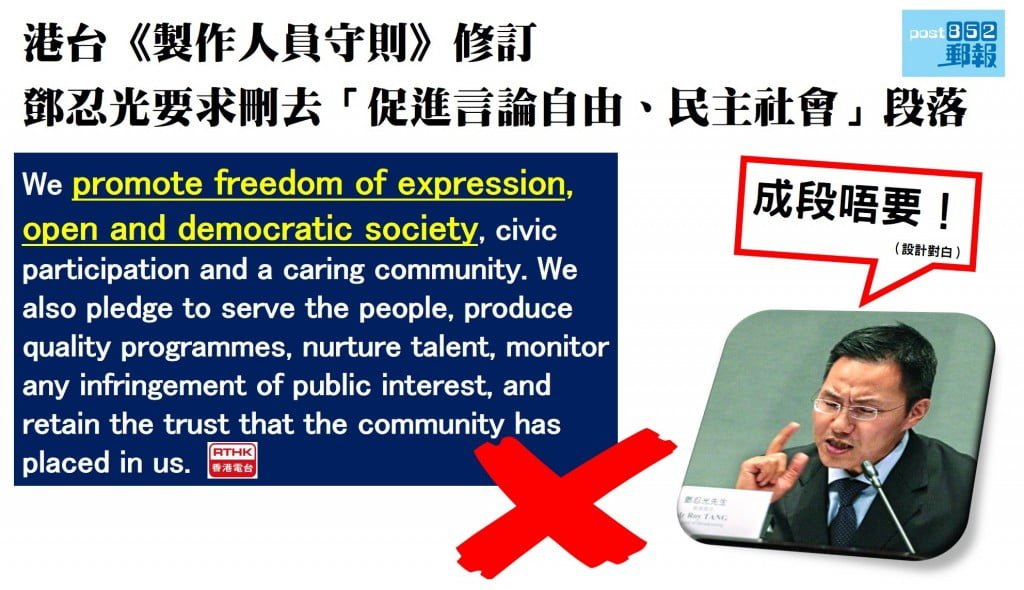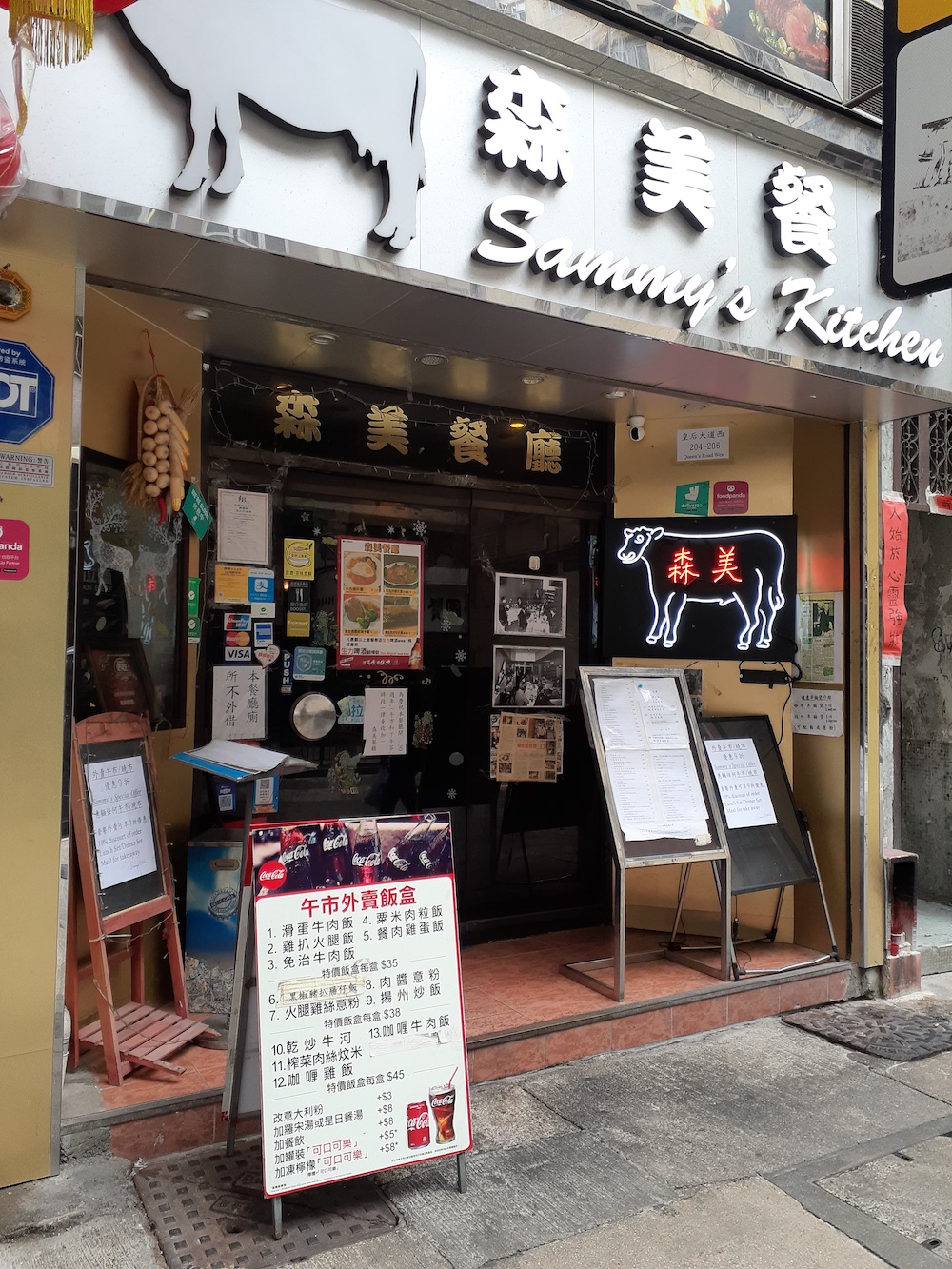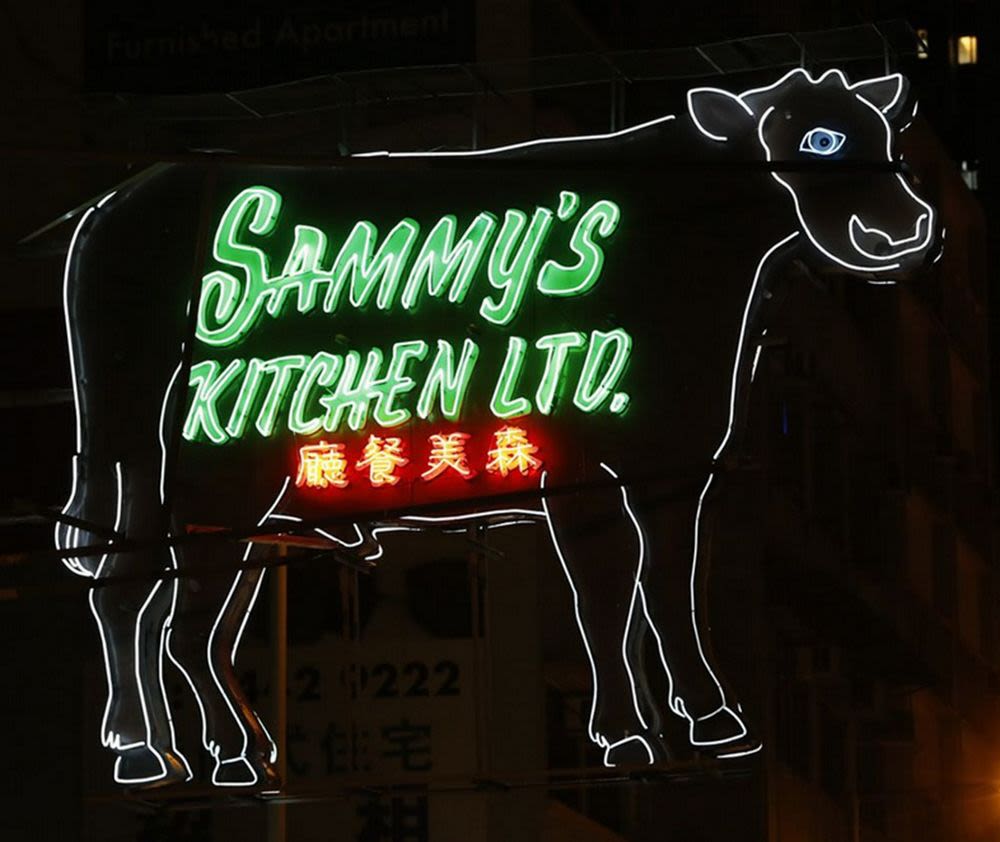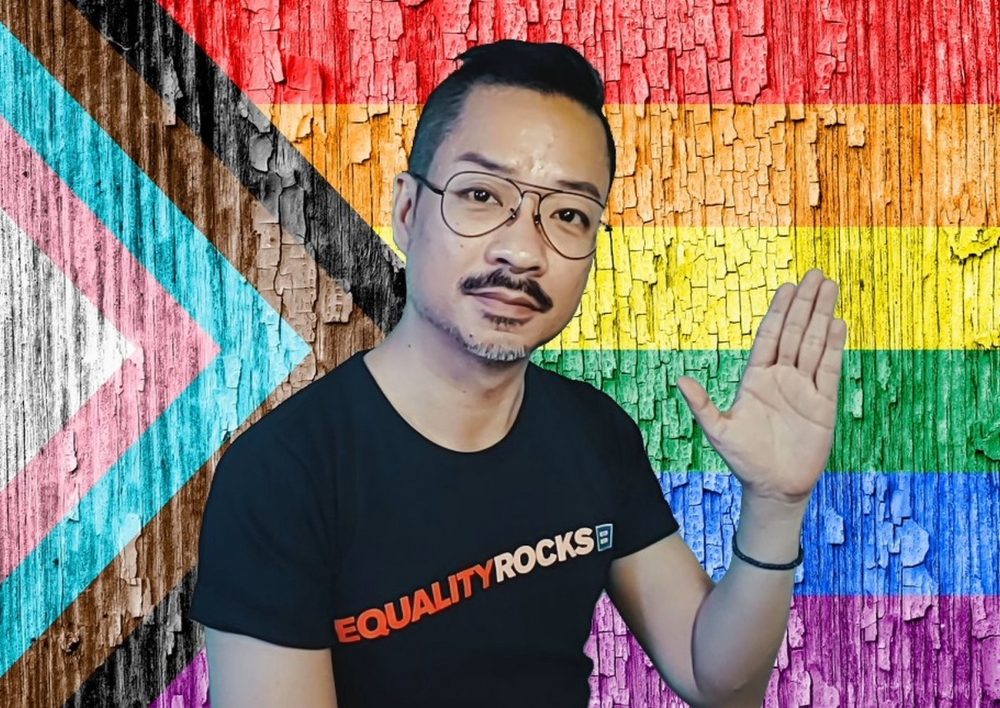
All is not well at RTHK as Director Roy Tang demands the removal of ‘promoting freedom of expression and a democratic society’ from Producers Guidelines.
Here’s the original story in Chinese: 港台《製作人員守則》修訂 鄧忍光要求刪去「促進言論自由、民主社會」段落. With a quick translation provided by reddit user wheeloffire:
Roy Tang ‘harmonises’ RTHK Guidelines, demands the deletion of ‘promoting freedom of expression and a democratic society’ RTHK, which has had some ‘harmonious misgivings’ several times in recent years, now has a new crisis. Post 852 has obtained an internal RTHK document showing that RTHK staff have recommended that administration amend the Producers’ Guidelines. However they were met with Broadcasting Director Roy Tang’s demand that the words ‘promoting freedom of expression, open and democratic society’ be removed from the revision. When Tang’s demand was met with opposition, he further rudely asserted his stance one by one to the administration at a meeting.
According to the document, the ‘harmonised version’ of the revision will be implemented unless additional action is taken. The RTHK Union criticised the decision-making process as crude and unreasonable and appealed to RTHK staff to help to turn the tide [in favour of the original revision].
Besides the Charter of RTHK, RTHK has ‘Producers’ Guidelines‘ (Guidelines) which serve as basis for the editorial staff’s operations. The Forward of the Guidelines states that RTHK codified their tried and tested programme editorial practices into the Guidelines to enhance the transparency and accountability of RTHK’s operation. The Guidelines reflected not only RTHK’s working principles but also social norms and standards.
As the Guidelines had been neither reviewed or revised since 2003 and thus may have become outdated in part, RTHK formed a representative working group last year with delegates from more than 20 different departments. It is Post 852‘s understanding is that it was chaired by Assistant Director of Broadcasting Tai Keen-man. The working group met more than 10 times since May 2013 to discuss and propose specific recommendations on revising the Guidelines.
Originally, this was to be a very simple affair, yet now the situation appears to have changed. Post 852 obtained a non-public document that the RTHK Programme Staff Union (Union) issued to RTHK staff and found that the Director of Broadcasting had brutally demanded deleting a section of the proposed revised text.
It’s said that working group had reached a consensus last year and proposed amendments to paragraphs in the first chapter of the Guidelines which referred to public broadcasting. The Union document provides the revised English language (item 1), translated by the newspaper as follows [here’s the original instead]:
‘As a public service broadcaster, RTHK pledges to uphold the core values of editorial independence and impartiality. We take public interest as the basis of our work. We share the values and missions of public broadcasters around the world, namely universality, diversity, independence and distinctiveness of programming. We promote freedom of expression, open and democratic society, civic participation and a caring community. We also pledge to serve the people, produce quality programmes, nurture talent, monitor any infringement of public interest, and retain the trust that the community has placed in us.’
No related definitions under UNESCO
However RTHK administration subsequently told the working group that they had reservations about the above proposed revision. They believed that the sentence ‘We promote freedom of expression, open and democratic society, civic participation and a caring community’ (the ‘Freedom of Expression sentence’) was not defined under United Nations Educational, Scientific and Cultural Organization (UNESCO) for public broadcasters, and so they returned the revision back to the working group for further discussion.
The working group then held three meetings during which the group again consulted discourse on public broadcasting from UNESCO, Asia Pacific Institute for Broadcasting Development (AIB), and European Broadcasting Union (EBU). They found support for the core values of freedom of expression and open and democratic societies running throughout the organisational documents of major broadcasters and that it was in line with the international community’s understanding of public broadcasting. As a result, in November 2013 the working group unanimously carried the motion to retain the original proposed revision.
Post 852 looked at UNESCO’s website and found that, although UNESCO does not directly state that public broadcasters must promote democracy, it stresses that the public broadcasting ‘is vital to the functioning of democratic societies’ and ‘can serve as a cornerstone of democracy’ (note 2). In other words, according to the spirit of UNESCO, public broadcasting was originally also a tool to promote the development of democracy and it can be seen that the working group’s proposals were not unreasonable.
Relevant lines from UNESCO:
This brochure presents in a simple and direct style an entirely up-to-date summary of the basic concepts relating to public broadcasting, which is vital to the functioning of democratic societies.
When guaranteed with pluralism, programming diversity, editorial independence, appropriate funding, accountability and transparency, public service broadcasting can serve as a cornerstone of democracy.
link to reddit article: http://www.reddit.com/r/HongKong/comments/24iset/rthk_broadcasting_director_demands_the_deletion/






